Brody Leven's 'Lost'
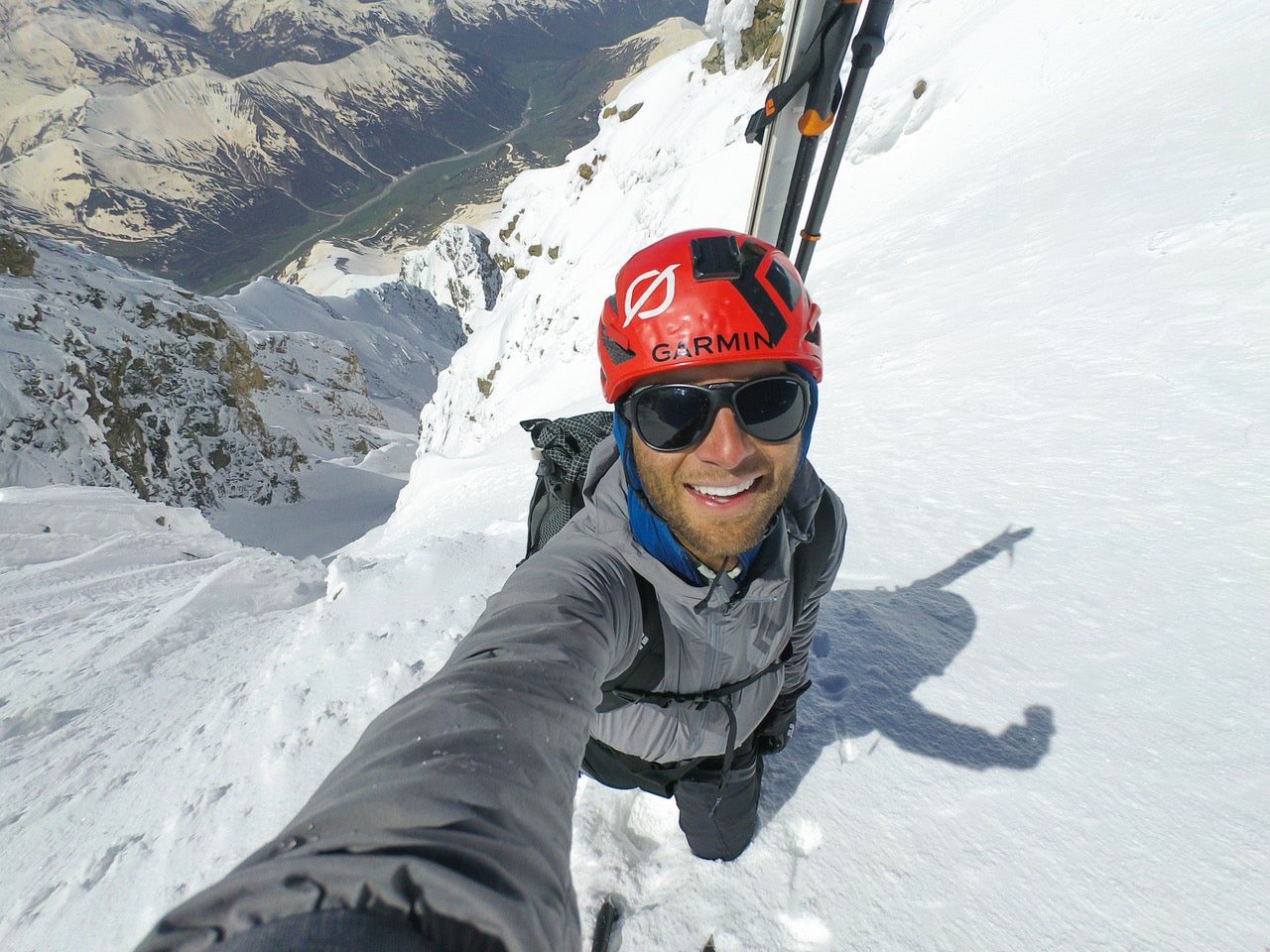
Photo Credit: Brody Leven
In 2018, the professional ski mountaineer found himself on a glacier below the Republic of Georgia’s highest mountain, Shkhara. Leven had just made the first descent of a massive couloir which runs from the summit of Shkhara’s sub-peak to the base. The feat was undertaken with Leven’s close friend, Mary McIntyre, who did not complete the full descent, and with the blessing of Jason Thompson, a ski photographer who had tried to ski the line on two separate expeditions in years prior.
Both McIntyre and Leven spent over a week on the glacier waiting for a weather window. On one of the final days, the pair made an attempt. The whole adventure is chronicled in Leven’s short passion film, “Lost.”
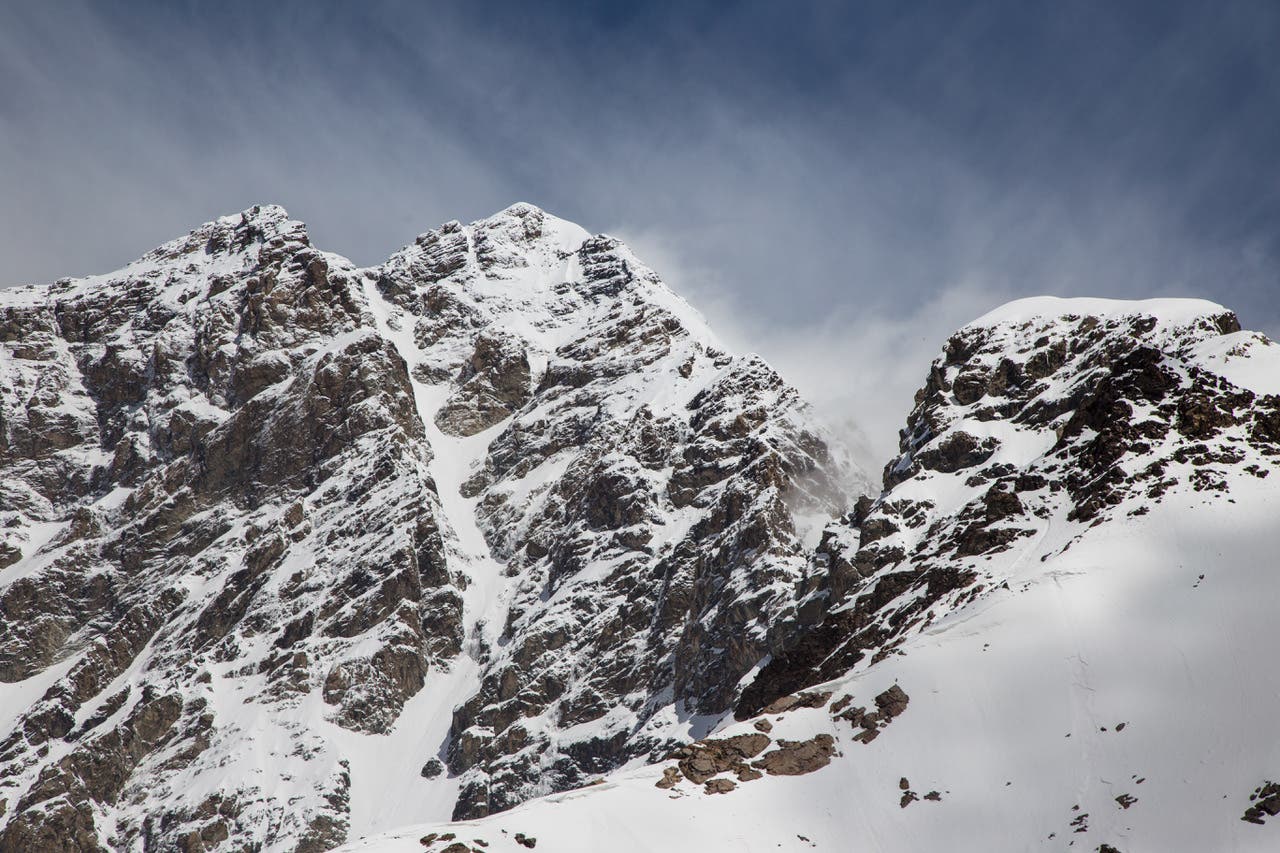
The film isn’t exactly on par with the production quality of Warren Miller Entertainment or Teton Gravity Research. Even Leven’s Garmin VIRB POV camera was pointed too far down to capture any stellar footage of his descent.
“I definitely did not intend to make this film,” says Leven. “I mean, the entire thing was shot on my old iPhone and it was only shot because I just like to document these things for myself.”
The documentary’s main themes attempt to center around the idea of feeling “lost,” how identity is shaped by ego, the need for validation, and the physical loss of both friends and support from the ski community. The movie offers an interesting glimpse into the thought process and life of a professional skier who does not feel welcome in the professional ski world.
Leven grew up “scrub skiing” and taking laps at the park on a 210 vertical-foot hill in Ohio. For college, Leven headed out to Salt Lake City where he got his feet wet slapping on skins and fell in love with rock climbing. Ever since graduating 10 years ago, Leven has been a professional ski mountaineer.
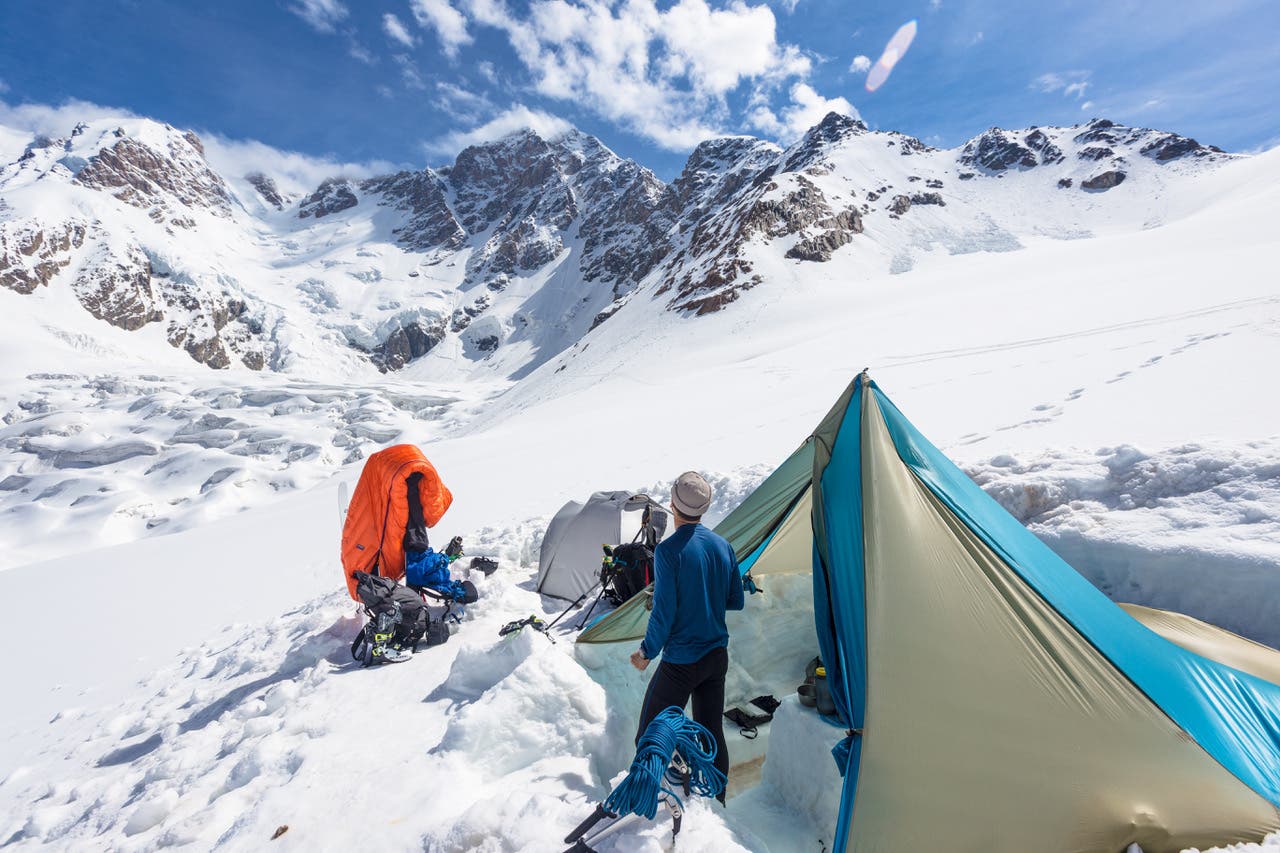
“The business of skiing has been harder than the skiing itself,” says Leven in “Lost.” In the film, he grapples with how a business centered around an extreme sport can rip loved ones away and has challenged his own identity as a skier. Going to Georgia in the first place was partially inspired by the death of Leven’s friend and role model, pro-skier Andreas Fransson. Fransson passed away during an avalanche in 2014 while on a film expedition in Chile. Leven says that before his death, Fransson proposed to their mutual sponsor that both Leven and himself go on a trip to Georgia. Obviously, the expedition with the pair never happened, but Leven’s pilgrimage became a partial ode to their relationship.
On another level, Leven balances the loss he has felt from the ski community itself. “In this small [adventure] niche of the industry, I believe we’re quick to compare the athletes we’re told to admire,” Leven writes in a recent Instagram post. “And I simply don’t fit the mold that’s been laid by those before me. I do this differently. I’m not a one-trick pony, don’t commit myself to only one sport, don’t swear, don’t drink, don’t do drugs, don’t do one-turn-wonders for the cameras of ski photographers, don’t ride ski resorts, don’t follow the annual pro-skier-migration to places like BC and Japan, don’t have a trust fund, don’t work another job, don’t believe in being apathetic or silent about important world issues, don’t really hang in the circles of skiers or ski mountaineers. For these reasons, I don’t seem to have the respect of many of the industry insiders.”
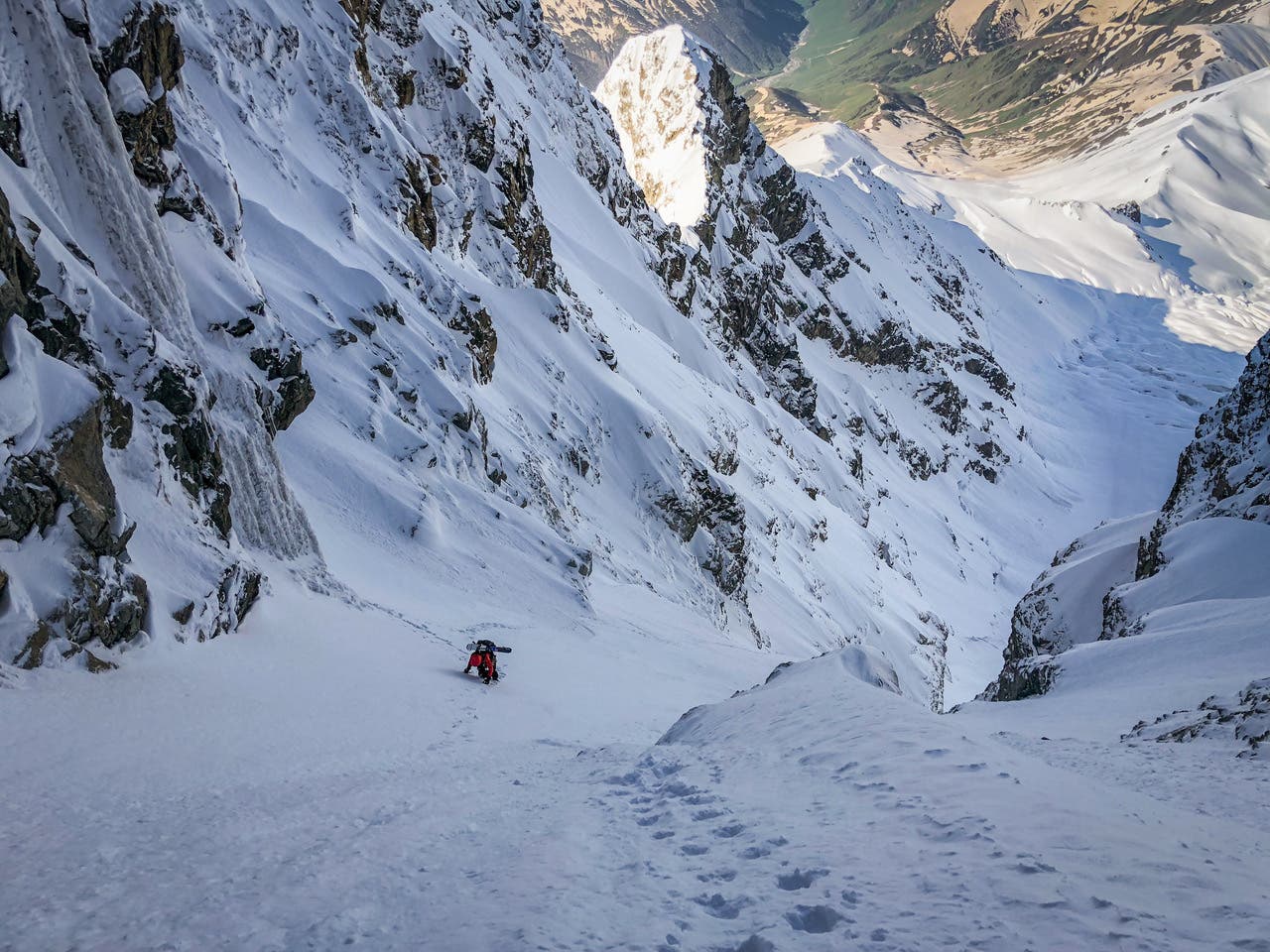
Leven calls the industry insiders “the establishment,” or professionals, media, and those who uphold an “insular old boys club.” Leven is quick to delineate the establishment from his fans and people who consume ski media, the people that watch his content and actively support him by doing so. The establishment, according to Leven, are the athletes and members of the media who uphold toxic norms.
This idea of an “insular culture” isn’t new. Snow Sports Industry of America found that 72 percent of alpine skiers in the U.S. are white and only 7.3 percent are Black. The same study found the sport also skews male, who make up 60 percent of skiers. Last year’s Matchstick Production movie, Return to Send’r, which focused on a group of four men braving huge lines, and was called out by many in the ski industry for failing to have significant female representation. Although the gender gap seems to be closing in many ski movies to be released in September including MSP’s “Huck Yeah!” the representational gap in films speaks to the masculine “bro culture” that Leven points to.
Related: Another Year, Another Batch of Male Dominated Ski Films
Leven is candid about his privilege in the ski world, “I’m sick of it. If I look the way I do, as a white male, and I don’t feel welcome in the ski industry, I can’t even imagine the way that others who don’t look like me feel.” Though despite these sentiments, it can’t be ignored that “Lost” itself centers around Leven, a white male, and ultimately his trials and tribulations.
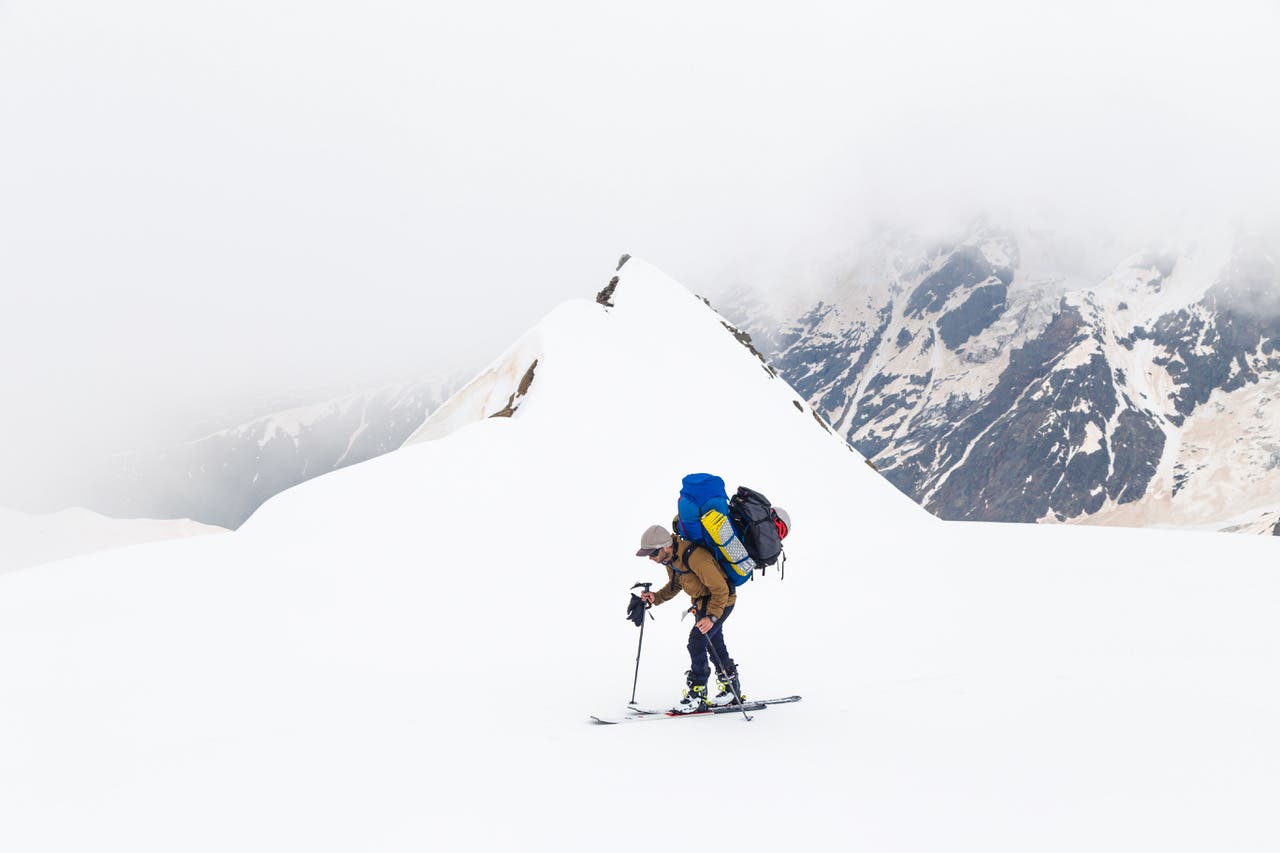
“I think a lot of [other] industries embrace change and embrace differences, and I don’t think the ski industry does,” says Leven. “I’ve lost sponsors over the fact that I’m so outspoken about the environment and social justice issues, and public land issues. And the way I see it, that’s exactly what athletes need to be doing right now.”
Leven has been especially outspoken in the environmental movement. He was one of the first athletes to join Protect Our Winters alongside Forrest Shearer and Caroline Gleich. He has also worked with the Winter Wildland Alliance, the Sierra Club, Heal Utah, and is on the board of the Utah Wildlife Federation.
Leven points out that a majority of sponsored ski athletes are white males from Salt Lake City and similar places, in other words, like himself. Leven—who was dropped by Salomon in 2016-’17 and, despite offers, has not found the right match with a ski apparel company since—realizes that the bandwidth for white males on teams might be maxed. But still, he finds that teams are homogenous and largely the same.
He calls on companies to “consider making sure those people act as allies to the diversification of [their] team, to the inclusivity of the sport. Because right now, the sport is not welcoming. The barriers to entry are way too high,” says Leven. “Just because I’m a white male in the ski industry does not mean that I believe that same voice saying the same thing should just be played on repeat.”
Read: Talking About How Skiers Talk
“Lost” took two years to edit and eventually release. “Sure enough we finished the film and nobody wanted it,” says Leven of finding a sponsor for the “Lost.” Despite the disappointment, the goal was never to make money but to strike a new nerve. “I think there’s a message there that’s important to people, whether or not they ski,” says Leven. “I don’t see it as the film about me, I don’t expect sponsors to come knocking at my door after seeing it, but I would hope that people who choose to watch it can relate it to themselves.”